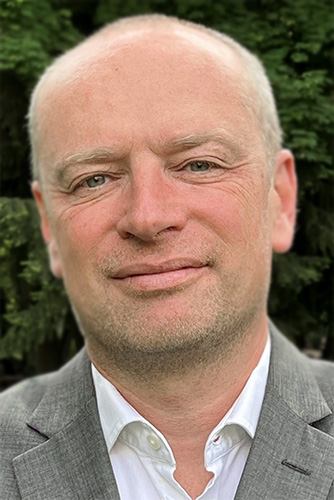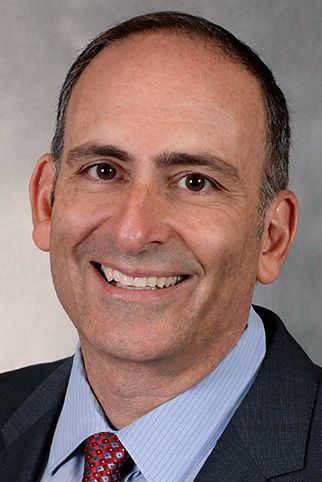

DNS |
Sponsored by |

|
 On October 20th, ICANN and Verisign renewed the agreement under which Verisign will continue to act as Root Zone Maintainer for the Domain Name System (DNS) for another 8-year term. The Root Zone sits atop the hierarchical architecture of the DNS and is essential to virtually all internet navigation, acting as the dynamic, cryptographically secure, global directory of all top-level domains that exist in the DNS.
On October 20th, ICANN and Verisign renewed the agreement under which Verisign will continue to act as Root Zone Maintainer for the Domain Name System (DNS) for another 8-year term. The Root Zone sits atop the hierarchical architecture of the DNS and is essential to virtually all internet navigation, acting as the dynamic, cryptographically secure, global directory of all top-level domains that exist in the DNS.
 In today's interconnected world, your business's online identity is increasingly more vulnerable than ever. With the rapid advancement of AI and 6G technologies, cyber threats are evolving at an alarming rate, making it critical to protect your brand's digital presence. How can businesses proactively safeguard their online identity in this changing landscape?
In today's interconnected world, your business's online identity is increasingly more vulnerable than ever. With the rapid advancement of AI and 6G technologies, cyber threats are evolving at an alarming rate, making it critical to protect your brand's digital presence. How can businesses proactively safeguard their online identity in this changing landscape?
 The domain name system (DNS) is vital for businesses as it facilitates customer access to online services and resources. Strategic DNS management plays a pivotal role in cybersecurity, safeguarding against threat vectors and ensuring secure global connectivity across online channels including apps, email, websites, application programming interfaces (APIs) and more.
The domain name system (DNS) is vital for businesses as it facilitates customer access to online services and resources. Strategic DNS management plays a pivotal role in cybersecurity, safeguarding against threat vectors and ensuring secure global connectivity across online channels including apps, email, websites, application programming interfaces (APIs) and more.
 ICANN must act now to harmonize its domain name registration data (commonly known as WHOIS) policies with Article 28 of the European Union's Network and Information Security (NIS2) directive, first to adhere to applicable laws as it fulfills its oversight responsibilities and, second, to keep its word to the community to preserve WHOIS to the fullest extent possible under law.
ICANN must act now to harmonize its domain name registration data (commonly known as WHOIS) policies with Article 28 of the European Union's Network and Information Security (NIS2) directive, first to adhere to applicable laws as it fulfills its oversight responsibilities and, second, to keep its word to the community to preserve WHOIS to the fullest extent possible under law.
 The DNS is a crucial part of today's Internet. With the fracturing of the network's address space as a byproduct of IPv4 address run down and the protracted IPv6 transition the Internet's name space is now the defining attribute of the Internet that makes it one network. However, the DNS is not a rigid and unchanging technology. It has changed considerably over the lifetime of the Internet and here I'd like to look at what's changed and what's remained the same.
The DNS is a crucial part of today's Internet. With the fracturing of the network's address space as a byproduct of IPv4 address run down and the protracted IPv6 transition the Internet's name space is now the defining attribute of the Internet that makes it one network. However, the DNS is not a rigid and unchanging technology. It has changed considerably over the lifetime of the Internet and here I'd like to look at what's changed and what's remained the same.
 On June 9 CircleID published an insightful article by Thomas Rickert entitled "Demystifying Art 28 NIS2." In that piece Thomas set forth two alternative interpretations of Article 28(6) of NIS2, and argued that TLD registries should not be required to maintain a separate database of the registrant data under NIS2. In my view, Thomas' approach is inconsistent with the remainder of Article 28, and would not achieve the goals of NIS2 to improve cybersecurity across the EU member states.
On June 9 CircleID published an insightful article by Thomas Rickert entitled "Demystifying Art 28 NIS2." In that piece Thomas set forth two alternative interpretations of Article 28(6) of NIS2, and argued that TLD registries should not be required to maintain a separate database of the registrant data under NIS2. In my view, Thomas' approach is inconsistent with the remainder of Article 28, and would not achieve the goals of NIS2 to improve cybersecurity across the EU member states.
 On December 14, 2022, the European Parliament adopted the Directive on measures for a high common level of cybersecurity across the Union (Directive (EU) 2022/2555) hereinafter referred to as "NIS2"), which was published in the official journal on December 27, 2022. Being a directive, NIS2 requires transposition into national law. According to Art. 41 of NIS2, the transposition into national law must take place by October 17, 2024 and the measures must be applied as of October 18, 2024.
On December 14, 2022, the European Parliament adopted the Directive on measures for a high common level of cybersecurity across the Union (Directive (EU) 2022/2555) hereinafter referred to as "NIS2"), which was published in the official journal on December 27, 2022. Being a directive, NIS2 requires transposition into national law. According to Art. 41 of NIS2, the transposition into national law must take place by October 17, 2024 and the measures must be applied as of October 18, 2024.
 Every day, there are tens of thousands of domain names registered across the globe -- often as a key first step in creating a unique online presence. Making that experience possible for Verisign-operated top-level domains (TLDs) like .com and .net is a powerful and flexible technology platform first introduced 25 years ago.
Every day, there are tens of thousands of domain names registered across the globe -- often as a key first step in creating a unique online presence. Making that experience possible for Verisign-operated top-level domains (TLDs) like .com and .net is a powerful and flexible technology platform first introduced 25 years ago.
 I recently appeared on the 419 Consulting podcast to discuss the European Union's NIS 2.0 Directive and its impact on the domain name ecosystem. I encourage all TLD registries, domain name registration service providers, and DNS operators to listen to the recording of that session which Andrew Campling has made available.
I recently appeared on the 419 Consulting podcast to discuss the European Union's NIS 2.0 Directive and its impact on the domain name ecosystem. I encourage all TLD registries, domain name registration service providers, and DNS operators to listen to the recording of that session which Andrew Campling has made available.
 As a member of the ROW Planning Committee, I am writing this post on behalf of the Committee and welcome all community members to join us on June 4th. We are celebrating ROW's 10th anniversary! A decade of collaboration and inspiration! Thank you to the incredible community that has fueled this journey!
As a member of the ROW Planning Committee, I am writing this post on behalf of the Committee and welcome all community members to join us on June 4th. We are celebrating ROW's 10th anniversary! A decade of collaboration and inspiration! Thank you to the incredible community that has fueled this journey!